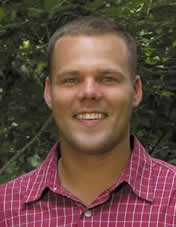
It looks like the “freshman 15,” the infamous fifteen extra pounds that college freshman supposedly put on during their first year of college, is actually more like 8 pounds. See, this is why you shouldn’t do research. “Freshman 15” kind of roles off the tongue: both words are two syllables and begin with the letter f. “Freshman 8” is awkward. And, it’s more like 7.9.
Hey kids, watch for the freshman 7.9 this year. That’s just confusing.
Anyway, the new data that keeps us from having fun was reported by USA Today on Monday. The article explains a recent study conducted by the Obesity Society. From the article entitled
Freshman 15 drops some pounds:
“Although the freshman-year weight gain is less than thought, nutritionists are not applauding. They still fear these young adults are laying the groundwork for heavy adulthood by succumbing to the temptation of unlimited and unsupervised food choices.
‘The first year of college is a vulnerable time for students,’ says lead researcher Elizabeth Lloyd-Richardson, an assistant professor of psychiatry and human behavior at Brown University Medical School in Providence. ‘While most are not gaining the Freshman 15, many are gaining weight and aren't taking it off.’”
The article mentions the abuse of freedom, the ability for students to eat whatever they want, whenever they want (which is such a weird thing, the more I think about it), and it discusses how students fail to exercise. Now that I think of it, it’s kind of surprising to me that you don’t hear of lawsuits against college cafeterias. Think about it: there’s gotta be someone to blame here.
And, as my good friend and co-worker
Chris Wagner pointed out in an email: “I think perhaps they've overlooked the possibility that eating disorders/body image issues could be a cause for the average decrease in weight gain.” I agree.
You can read the entire article
here.
 As you probably know, CPYU’s website is continually being updated. Recently, a few articles have been put on the CTI Articles section that might interest you. They’re written by yours truly.
As you probably know, CPYU’s website is continually being updated. Recently, a few articles have been put on the CTI Articles section that might interest you. They’re written by yours truly.


